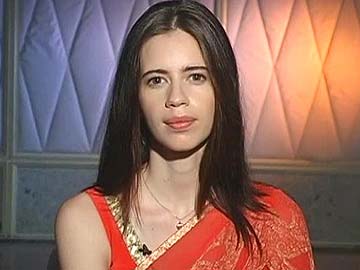MUMBAI, (Reuters) – Kalki Koechlin is one of the few Bollywood actresses in recent years to build her star power while proving her talent in indie and mainstream Indian cinema.
In 2013, she played what many would consider a side role in one of Bollywood’s biggest romantic movies, “Yeh Jawaani Hai Deewani” (This Youth Is Crazy), decked in slinky designer outfits and dancing to peppy dance numbers.
In Shonali Bose’s “Margarita, With a Straw”, Koechlin plays Laila, a teenager who is afflicted with cerebral palsy, but is also discovering her own sexuality, much to her conservative mother’s horror.
The film, which is scheduled to be released in India next year, premiered at the Toronto Film Festival in September, and screened at the London Film Festival this month.
Koechlin, 30, who was born in India to French parents, spoke to Reuters about her role in the film and spending two months in a wheelchair for the part.
Q: How much of a challenge was it to prepare for this role, mentally and physically?
A: It was as much of a challenge to prepare mentally. Especially in terms of preparing myself to be that vulnerable as a character who is disabled and discovering her own sexuality. But I was in good hands. The film is about a teenager with raging hormones. It’s done in a very beautiful manner. It looks at all the aspects, including the way my mother in the film reacts to my sexuality.
Q: Are you apprehensive about traditional Indian audiences, who don’t accept radical subjects in cinema, and how they will react to the film?
A: The film does that. Her mother represents a very conservative family and her reaction is one many people will relate to. When you write a good script, when you look at it in a holistic manner, not just from one angle, it makes sense.
Q: What do you hope the film does in terms of the debate around sexuality in India?

A: First of all, I hope for a release. We haven’t passed the censors and all that. Of course this isn’t a commercial film, but we have an audience that is demanding and hungry for intelligent and thought-provoking cinema. The trailer itself has gone viral. It’s (for) a niche audience. The urban, mature audience, but it’s a film that can really touch hearts. It’s not a dark film at all. Laila’s character is always joking around. She has a lot of love for life. In that sense, it is not a depressing film at all.
Q: With roles like this, there is a very thin line between getting it right and overdoing it. How do you walk that line?
A: Oh yes, there is huge pressure to get it right. I insisted on six months of training for this film because I wanted to be very authentic. I don’t do this for all my films but I stayed in character throughout for this film. From the minute I woke up, I would be in my wheelchair, except when there were practical problems like when we had to get quickly from one place to another and there was no ramp. This was for two and a half months. It gave me some back problems too, but I wanted to know what it feels like to stay in a chair all the time, to never be able to get up. I wanted to know that frustration and pain.
Q: That must have been draining.
A: It was very draining. People would stare at me all the time. One guy who had worked with me on an earlier film thought I’d had an accident and I was acting in spite of that. I saw that in New York, where people don’t recognise me, they went out of the way to help me. It just gives you a perspective about how the world views someone with disabilities.
